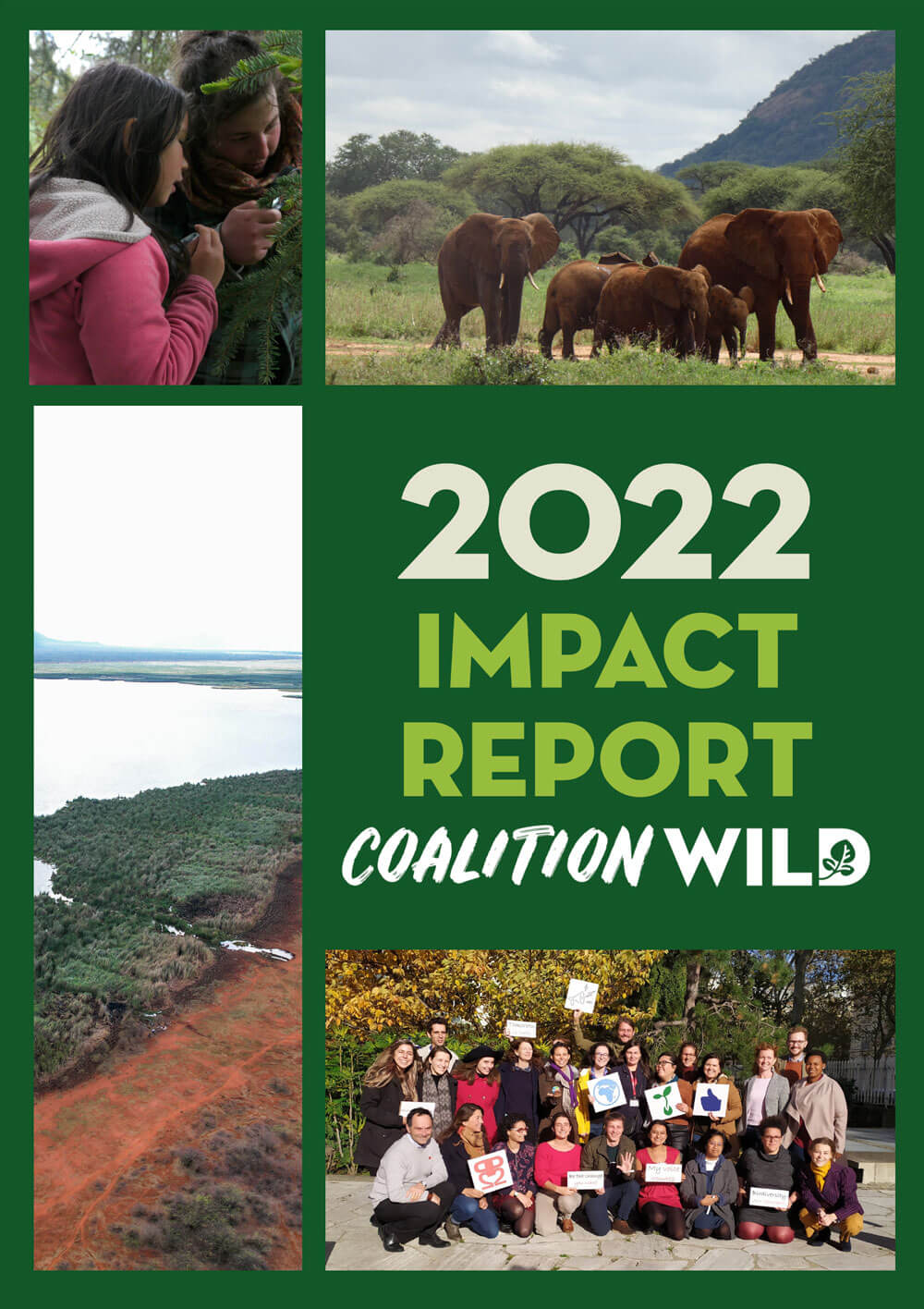CoalitionWILD is equipping the youth of today for a better tomorrow.
EXCELerator
An intensive 6-month leadership and capacity building training equipping emerging environmental leaders with the skills necessary to carry out action projects for the planet.
Global Mentorship
A 6-month virtual mentorship program aimed at building collaborative and cross-generational relationships between emerging young conservation leaders and senior conservation professionals.
Capacity Building Workshops
CoalitionWILD collaborates with programs and organizations globally to provide their networks with youth trainings, tailored mentorship and facilitated skill building workshops. Email us to partner.
Impact Report 2022
We believe that making a difference starts with an awareness of your own impact on the world around you.
In our 10 years of developing young leaders, we have seen how individuals who grow to become community leaders generally have the discernment to identify issues in their own communities and ecosystems. Their experiences have helped them recognize these challenges, giving them an idea of how to address them. We step in to provide free resources and mentorship so that they can put their vision into action.
Join us as we continue to cultivate a movement of young leaders who can make a difference in their communities. Let’s take a step together to inspire more generations to come.
A Force For Change
Youth-developed and youth-led by a youth-team, youth-board, and youth-partners*, we know that just inspiring youth isn’t enough –
We need to lower the threshold for active involvement.
We work with young people self-designing solutions for issues they care about.
It’s not just about providing the tools to create action. We are ensuring they have the belief that they know how to use those tools best.
* We define youth as 35 years of age and under.
Emerging Leaders Equipped
People Impacted Globally
Countries
Excelerator
Alumni
Mentorship Participants
Young Champions Of The Earth
